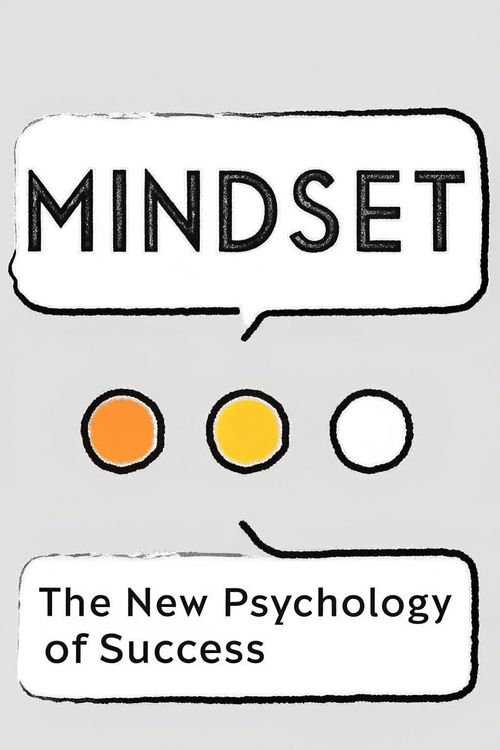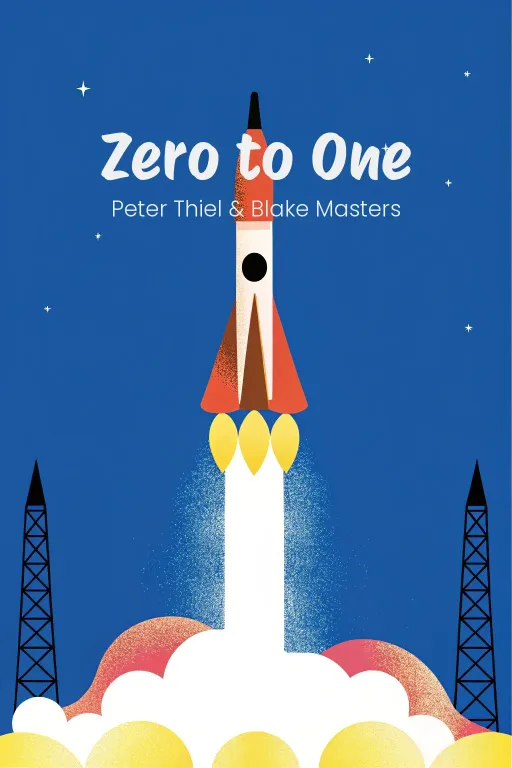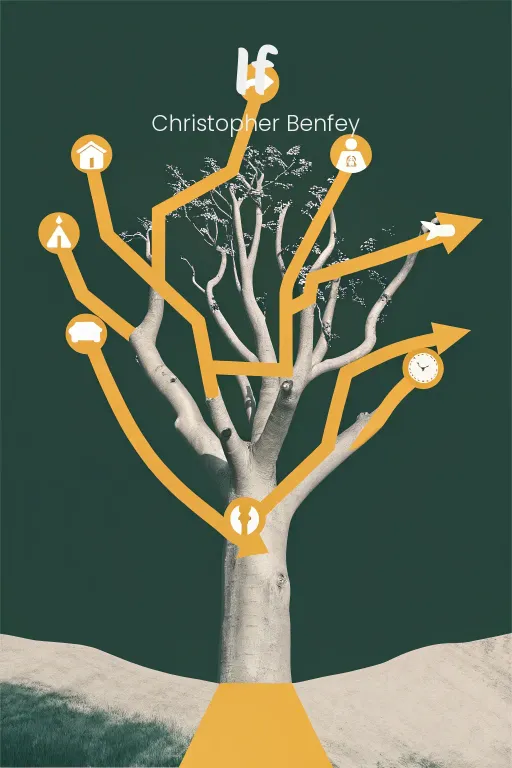
Lead Like a Legend: Lessons From History's Best
Podcast by Civics Decoded with Thomas and Grace
Six Studies in World Strategy
Lead Like a Legend: Lessons From History's Best
Part 1
Thomas: Hey everyone, welcome back! Today, we're diving deep into the lives of six truly remarkable figures who, each in their own way, reshaped the world after World War II: Konrad Adenauer, Charles de Gaulle, Richard Nixon, Anwar Sadat, Lee Kuan Yew, and Margaret Thatcher. These aren't just names in textbooks; they're complex, powerful leaders who “really” left their mark on the political landscape as we know it. Grace: Exactly, Thomas. What “really” grabs me is how these leaders weren't just keeping their countries afloat – they were surfing these massive historical waves. I mean, think about it: Germany in ruins, the whole Cold War drama, the rise of globalization. What is it that allows someone to not just survive all that, but to actually shape the course of history? Thomas: That's the million-dollar question, Grace! And that's exactly what we're going to be exploring today: how these six leaders used their character, their vision, and, well, just the circumstances they found themselves in, to redefine their times. Adenauer's work in rebuilding Germany's reputation, Thatcher's transformation of the British economy, Sadat's incredibly brave peace deal – I mean, each of them is like a case study in adaptation and strategic thinking. Grace: Okay, so here's what we're going to unpack today. We're going to start with how personal strength and good timing came together – how these leaders not just dealt with their times, but actually molded them to fit their own plans. Thomas: Right! Then we’ll “really” zoom in on their boldest moves – what I like to think of as their high-stakes gambles. Some paid off big time, and others… well, they kind of blew up in their faces. Think about Nixon's opening to China or Sadat's incredibly risky trip to Jerusalem. Grace: And finally, we're going to turn the spotlight on ourselves. In a world that has its own fair share of crises, what can we take away from their successes and failures? From navigating tough geopolitical stuff to just handling everyday chaos, I think there's something for every kind of leader in this. Thomas: Absolutely! So, buckle up, because this is more than just a history lesson. It's a roadmap for understanding leadership, power, and how to “really” bounce back from anything. So, let’s jump right in!
The Interplay of Character and Circumstance
Part 2
Thomas: Alright, Grace, let’s kick things off by diving into something truly foundational to leadership: the interplay of character and circumstance. It's key because leadership doesn't exist in a bubble. Leaders are molded by their times, sure, but the best ones? They actually reshape those times right back. Think of Konrad Adenauer and Charles de Gaulle, for instance. Their stories are just packed with this dynamic. Grace: Absolutely, Thomas. Let’s start with Adenauer. If there was ever a leader thrown into the deep end, it was him. Post-World War II Germany wasn’t just defeated - it was morally bankrupt, fragmented, and viewed with deep suspicion. And Adenauer takes this absolute disaster and somehow lays the foundation for modern Germany as we know it. I mean, how? Thomas: Well, resilience was absolutely key to his leadership, I’d argue. He wasn't some lucky bloke who stumbled into power; his character was forged way before he became Chancellor in '49. He’d been imprisoned by the Nazis, suffered personal loss, and watched his country collapse. That resilience – his ability to endure and remain moral in a profoundly immoral time – shaped how he rebuilt Germany. Grace: True, but resilience alone doesn’t cut it. What stands out about Adenauer is the humility he integrated into his leadership. He knew Germany couldn’t just muscle its way back to respect post-war. So, he pushed for reconciliation instead. Partnering with former adversaries like France? I mean, Thomas, that’s more than diplomacy, that’s swallowing a national ego the size of a continent. Thomas: Exactly. That leads us to the Schuman Plan and the European Coal and Steel Community. It wasn't just about economics; it was about forging a new identity for Germany. Adenauer saw humility not as weakness, but as strength – a way to rebuild international trust. He had phenomenal strategic patience while facing huge domestic pressure from Germans still reeling from the loss of global standing. Grace: And that decision still echoes today. Germany became the cornerstone of European unity because Adenauer laid that groundwork. But here’s the thing, Thomas – it could've gone very differently. He could’ve gone down the nationalism route, playing on post-war anger and humiliation. Do you think his Christian values were a defining factor, or was it just ice-cold, pragmatic political genius? Thomas: I think it was both, honestly. His Christian values anchored his moral compass, giving him clear direction amidst the chaos. But he wasn’t naive – he understood that humility and moral reflection could also be tools to rebuild Germany’s power. It’s that blend of deep personal conviction and sharp political calculation that makes him remarkable. Grace: Fair enough. Let’s switch gears to Charles de Gaulle, who, to me, represents almost the opposite approach. Where Adenauer leaned into humility and cooperation, de Gaulle was all about sheer willpower and an relentless push for sovereignty. That man screamed independence—and demanded it for France. Thomas: Oh, absolutely. De Gaulle’s vision for a strong, autonomous France is legendary. And he didn’t wait for history to hand him the reins; he grabbed them. Take the Appeal of 18 June, when he called on the French to resist Nazi occupation after fleeing to London. That broadcast wasn't just a call to arms; it was an act of defiance that redefined France's identity at its lowest point. Grace: And let’s not forget how audacious that was. This relatively unknown officer – turning his back on the Vichy regime, going rogue in a foreign land – all because he believed in an idea of France that didn’t yet exist. That’s guts. But Thomas, do you think de Gaulle’s unflinching willpower sometimes went too far? I mean, look at his NATO decision – pulling France out of its integrated command structure. Bold, yes, but wasn’t it also a bit... stubborn? Thomas: It's a fair point, but I’d argue it was calculated. De Gaulle believed France’s sovereignty was non-negotiable, even if it meant standing alone at times. Leaving NATO’s integrated command wasn't about isolation. It was a statement that France wouldn’t just take orders from other powers, especially the United States. He wanted to remind everyone – and most importantly the French themselves – that their nation could stand on its own. Grace: That's true, but it's also divisive. What makes de Gaulle fascinating is that he forced France to think about itself in terms of dignity and independence, even if it ruffled feathers. It’s a different legacy than Adenauer’s, sure, but no less impactful. So, Thomas, what's the common thread here, then? Resilience, humility, willpower – how do these traits intersect with their historical moments? Thomas: Well, neither of these leaders inherited ideal circumstances. Adenauer faced a shattered Germany; de Gaulle navigated a fractured and occupied France. They matched their inner character to what their time demanded. Adenauer's humility addressed Germany's need for reconciliation; de Gaulle's willpower revived French pride and independence. And that powerful balance between who they were and what history called for is what allowed them to leave such lasting legacies. Grace: And that’s the takeaway for leaders today, isn’t it? You've got to master both sides of the coin: having the conviction to stand firm on your principles while also reading the room – or, in their case, the geopolitical chessboard. Whether it's a humble approach or a forceful one, it’s all about timing and context. Thomas: Exactly, Grace. These stories remind us that great leadership isn’t just about reacting to challenges; it’s about actively shaping the world around you, even when the odds are stacked against you. That’s what makes figures like Adenauer and de Gaulle timeless examples of the interplay between character and circumstance.
Strategies of Leadership in Crisis
Part 3
Thomas: Understanding how character and circumstance shape leadership naturally leads us to think about the strategies these leaders used when facing serious challenges. So, Grace, that brings us to a key question: when faced with crises on a national or global scale, what strategies did leaders use to not just survive, but actually thrive? Today, we're diving into "Strategies of Leadership in Crisis." Grace: Exactly, Thomas. And to give our listeners a heads-up – this section is all about action. We're taking everything we've discussed about character and circumstance and looking at how those things played out in actual strategic choices when the stakes were incredibly high. Margaret Thatcher and Anwar Sadat are… well, let's just say they offer contrasting examples. Thomas: Oh, definitely contrasting. Thatcher's leadership is a perfect example of what we could call "the strategy of conviction." When Britain was drowning in economic problems, she stuck to her guns and didn't waver, even when her choices caused huge public outcry. Grace: And then Sadat went for "transcendence," daring to break down old hostilities and take massive risks to try and create lasting peace in the Middle East. Thomas, they really are like textbook cases – two leaders who, in their own ways, were playing for the long game, despite the huge immediate costs. Thomas: Absolutely. Let’s start with Thatcher, because her approach to Britain’s economic crisis in the late 1970s was truly revolutionary. Imagine a country struggling with double-digit inflation – 18%, to be exact – rising unemployment, and constant strikes. The labor unions, though powerful, were basically strangling economic productivity. Thatcher saw the status quo not just as a system that was failing, but as a threat to the very future of the UK. Grace: Okay, but Thomas, hold on a second. Britain wasn't just having financial problems back then, right? It was also a weird cultural moment where the unions seemed to have more power than the government. They called it the "Winter of Discontent," didn't they? Garbage piling up in the streets, hospitals barely functioning. And then Thatcher steps in and says, "Forget this. We're going full free-market mode." That must have caused a political earthquake. Thomas: It did. Her policies sparked immediate controversy. She tackled inflation with strict monetarist policies, raising interest rates to 17%. Yes, inflation did go down, but it came at the cost of a severe recession, with businesses failing, the GDP shrinking, and millions out of work. And let's not forget her battle with the labor unions. She pushed through laws to limit their power – no more strikes without a clear vote from union members – and privatized industries like British Telecom and British Airways. It was a huge economic shift. Grace: But Thomas, stripping unions of their power and selling off public industries… those weren't exactly moves that screamed “compromise.” Some people called it plain stubbornness. She famously said, "The lady's not for turning." Was that statement designed to send chills down the spines of her critics, or... maybe just annoy them? Thomas: That line really sums up her leadership style, Grace. She believed that leading during a crisis meant holding firm to your beliefs, even with massive opposition. And you know what? In the end, it worked. By 1987, inflation was down to 4%, and London became a major center of global finance. Plus, her housing policy, which allowed people to buy their council homes, created a new sense of individual responsibility. Grace: But Thomas, let's be real here – many people were left behind. You had rural communities and industrial workers who suffered the most from those reforms. Sure, her policies might have made Britain more dynamic, but they also made inequalities worse, didn't they? Couldn't you argue that the cure was almost as bad as the disease? Thomas: That's a valid point, Grace. Thatcher's leadership definitely reshaped Britain, but it also created some deep social divisions. Still, her example shows a crucial point: in a crisis, a leader's clear vision can be both their greatest asset and their biggest weakness. But enough about Thatcher. Let's move on to someone whose strategy was almost the opposite – Anwar Sadat and his gamble for peace in the Middle East. Grace: Ah, Sadat. If Thatcher's strategy was conviction, Sadat’s was transcendence, where he was thinking beyond the immediate circumstances to deal with the deep-seated hostilities . Thomas, paint a picture of what Egypt was like before Sadat made his move. Thomas: In the late 1960s and early '70s, Egypt was stuck in what you might call a geopolitical stalemate. It had lost the Sinai Peninsula to Israel in the 1967 Six-Day War, its national pride was wounded, and years of military spending had wrecked its economy. Sadat inherited all of that when he became president in 1970. He realized that Egypt couldn't keep fighting Israel forever, but he also knew that peace was impossible without getting back some of that lost territory. Grace: So, he decides to make a point, and wow, what a point it was – launching the Yom Kippur War in 1973. Talk about a high-stakes gamble! Sadat strategically catches Israel off guard, breaks through the Bar-Lev Line, and regains some symbolic control of the Sinai. But Thomas, he didn't actually think he could win that war, did he? Thomas: That's the genius of his strategy, Grace. Sadat didn't need a complete military victory – he needed leverage. While Egypt's initial success was brief, and Israel, backed by the U.S., counterattacked, the symbolic victory was huge. It shattered the idea that Israel was invincible and boosted Egyptian national pride. That gave Sadat the political power to change direction and push for peace. Grace: Which brings us to the moment that shocked the world – Sadat's trip to Jerusalem in 1977. I mean, imagine having the audacity to walk into the Israeli Knesset, stand in front of a room full of longtime enemies, and say, "Let's make peace." Thomas: It was a truly historic moment, and it paved the way for the Camp David Accords the next year. With U.S. President Jimmy Carter as the mediator, these talks led to Egypt becoming the first Arab country to sign a peace treaty with Israel. In return, Egypt got back the Sinai Peninsula. It was a major diplomatic victory, but it came at a huge cost. Sadat faced intense criticism from the Arab world, lost Egypt's leadership position in the Arab League, and, tragically, was assassinated in 1981 by opponents of his policies. Grace: So here's the big question: was it worth it? Sadat essentially traded Egypt's standing in the Arab world for peace and its territory back. Did that strategy of transcendence ultimately help Egypt, or did it make Sadat a martyr for a vision that wasn't fully achieved? Thomas: That's the paradox of leadership in a crisis, Grace. Sadat's courage led to one of the most important peace agreements in modern history, but his vision wasn't universally accepted. However, his willingness to break free from the cycle of hostility and aim for a transformative outcome speaks to the very essence of transcendent leadership. Grace: Both Sadat’s and Thatcher’s strategies had massive implications – not just for their countries but for how we think about leadership during crises today. Conviction versus transcendence, short-term pain for long-term gain… It makes you wonder: Do we need more Sadats or more Thatchers in the world today? A question for another day, perhaps. But for now, let’s just say this: leadership in a crisis isn’t just about survival – it’s about transformation.
Legacy and Modern Leadership Challenges
Part 4
Thomas: So, when we delve into these strategies, we see how leaders juggle immediate problems with their longer-term goals. It really makes you think about what lasting lessons we can take away from their leadership. Which brings us to today's core question: "Legacy and Modern Leadership Challenges." We’re broadening our scope to connect these historical lessons to the issues leaders face now and will face in the future. It’s about seeing how leadership principles evolve while their essence remains. Grace: Exactly! What gets me is how leaders like Adenauer, Thatcher, and Sadat made their mark. They didn't just put out fires; they built the foundations for something bigger, more enduring. And this isn't ancient history. Their strategies are super relevant for leaders tackling today’s tech disruptions, identity politics, and the complexities of a multipolar world. Thomas: Right, Grace. Look at technological disruption. That's not just a modern problem. Think about Lee Kuan Yew! He faced huge changes in the 20th century, and his approach in Singapore is a great example of seizing opportunity during upheaval. Imagine this: In 1965, Singapore was a new, independent nation, separated from Malaysia, with zero natural resources or a manufacturing base to speak of. Grace: Talk about starting from scratch! It's like history set them up for failure. Singapore wasn’t even expected to survive! Yet, Lee Kuan Yew didn't just survive; he turned Singapore into a tech and economic powerhouse. Thomas, how did he actually do that? Thomas: Lee saw that globalization, driven by tech and communication, was Singapore’s lifeline. Instead of dwelling on the lack of resources, he invested in people and attracted high-tech industries. It wasn’t just throwing money at tech; it was strategic. He brought in Dr. Albert Winsemius, a Dutch economist, who highlighted the potential of electronics manufacturing. By attracting companies like Hewlett-Packard and Texas Instruments, Singapore created jobs and positioned itself as a leader in emerging industries. Grace: And he invested in education and training, right? He needed to build a skilled workforce to support those industries – reshaping the labor market to fit this new economy. One question though: you make it sound so smooth. How did he deal with the social and economic disruption that must have come with such rapid change? Thomas: It wasn't easy, Grace. Lee's government was highly structured, some would even say authoritarian, in implementing these changes. Individual freedoms were sometimes put aside to ensure discipline and unity during this nation-building phase. But this discipline allowed Singaporeans to adapt to the changes without being left behind. It highlights that bold leadership often comes at a cost. Grace: Which is super relevant now. Today's leaders are dealing with AI, automation, and global digital economies. If governments don't invest in education and align it with industry needs, we'll see an even bigger divide between those who benefit and those who don't. Honestly, the parallels are striking. Thomas: Exactly! Lee Kuan Yew's legacy is a masterclass in turning disruption into growth. He teaches modern leaders that technological change is an opportunity, as long as you're willing to think ahead and adapt your society. Grace: Speaking of adapting society, let's switch gears to something a bit touchier: identity politics. Leaders today are trying to unite polarized societies, often torn apart by cultural divisions or nationalism. Thomas, Sadat's leadership in this area is one of the most courageous examples I’ve seen. Thomas: Definitely, Grace. Sadat inherited an Egypt that was militarily weak and fractured by its identity as a defeated Arab nation after the Six-Day War in 1967. His challenge was huge: how do you lead a society defined by resentment into a future of reconciliation? For him it started with redefining narratives. That trip to Jerusalem in 1977 was crossing enemy lines symbolically, and literally. Grace: What a bold move! An Egyptian leader in the Israeli Knesset, calling for peace after decades of war. It’s almost movie-like! How did Sadat manage the backlash – both internationally and at home – without losing everything? Thomas: It was incredibly difficult, Grace. Arab leaders condemned him for betraying the cause, and he faced major criticism within Egypt. It tragically led to his assassination. But Sadat understood something key about leadership: progress often means upsetting the status quo. His peace treaty with Israel, even though divisive, achieved the impossible. It broke the cycle of war, reclaimed the Sinai Peninsula, and redefined Egypt’s position on the world stage. Grace: Sadat shows us that leadership isn't about pleasing everyone, especially in difficult times. It's about creating space for dialogue and finding shared principles amidst divides. But isn’t there a real risk? Leaders who try this today often get shouted down, or worse. And social media makes these divisions even louder. Thomas: That's the challenge today, Grace. Sadat’s story isn’t about simple solutions; it’s about what happens when courage meets necessity. His ability to look beyond tribalism and connect with universal principles of peace is relevant for leaders addressing polarization now. It’s about addressing grievances and finding common ground, not just protecting existing positions. Grace: So, we've covered technology and identity politics – two major challenges for modern leaders. But let's not forget the multipolar world we live in. De Gaulle's legacy, as we mentioned earlier, really hits the mark here. Thomas: Absolutely. De Gaulle’s focus on French sovereignty during the Cold War is a great model for leaders dealing with China's rise and other global shifts. His decision to pull France out of NATO’s integrated command wasn't about rejecting alliances; it was about protecting independence while working pragmatically with both sides. Grace: Right, asserting balance doesn’t mean isolation. Leaders today, dealing with cybersecurity or climate cooperation, can learn from de Gaulle: prioritize national integrity but use those networks when they help you. Some people dismiss these ideas as outdated, relics of a different era. But I think they’re more relevant now than ever. Thomas: I totally agree, Grace. What connects these stories - Lee Kuan Yew's tech foresight, Sadat's peace efforts, or de Gaulle's sovereignty - is the ability to apply timeless leadership principles to today's specific challenges. Ultimately, leadership is about having a vision and making it real. Grace: Exactly! These leaders remind us that leadership isn't fixed. It's a dynamic discipline that requires a blend of adaptability and conviction to succeed.
Conclusion
Part 5
Thomas: Wow, Grace, what a journey we've been on today! Thinking about leaders like Adenauer, de Gaulle, Thatcher, Sadat, and Lee Kuan Yew, it “really” hits you how much leadership is both personal and shaped by the world around them, right? Their ability to get through crises wasn't just about quick reactions, but about actually shaping the future, through being tough, having strong beliefs, making smart strategic moves, or adapting in smart ways. Grace: Exactly, Thomas. So, if we simplify it, these leaders show us that real success comes from matching who you are with what the world needs “right now”. Adenauer's modesty rebuilt trust, de Gaulle's strength gave people pride again, Thatcher's strong beliefs broke through economic problems, Sadat's ability to rise above changed peace, and Lee Kuan Yew's vision turned problems into chances. They all did things differently, but they all left behind things that are still important today. Do you think our current leaders recognize this? Thomas: Absolutely. That's why their stories are so important today. Whether we're dealing with new tech, disagreements, or a complicated world, these examples show us that great leadership isn't about taking the easy way out. It's about having a clear idea of where you're going, even when things are uncertain. Grace: Okay, so final thought: how do we, as regular folks or as leaders, deal with the challenges we face today? Can we learn from their toughness, their brave strategies, or their knack for turning crises into opportunities? Things aren't getting easier, but maybe that's the perfect time for honest and brave leadership. Thomas: Exactly, Grace. Leadership, whenever it is, is about making the world better—by doing things, believing strongly, and having a vision. Thanks for being with us today, and we'll catch you next time as we learn more from great leaders of the past.









